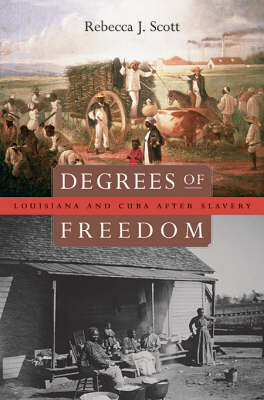As Louisiana and Cuba emerged from slavery in the late 19th Century, each faced the question of what rights former slaves could claim. Degrees of Freedom compares and contrasts these two societies in which slavery was destroyed by war, and citizenship was redefined through social and political upheaval. Both Louisiana and Cuba were rich in sugar plantations that depended on an enslaved labour force. After abolition, on both sides of the Gulf of Mexico, ordinary people - cane cutters and cigar workers, laundresses and labour organisers - forged alliances to protect and expand the freedoms they had won. But by the beginning of the 20th Century, Louisiana and Cuba diverged sharply in the meanings attributed to race and colour in public life, and in the boundaries placed on citizenship. Louisiana had taken the path of disenfranchisement and state-mandated racial segregation: Cuba had enacted universal manhood suffrage and had seen the emergence of a trans-racial conception of the nation. What might explain these differences?
Moving through the cane fields, small farms, and cities of Louisiana and Cuba, Rebecca Scott skilfully observes the people, places, legislation and leadership that shaped how these societies adjusted to the abolition of slavery. The two distinctive worlds also come together, as Cuban exiles take refuge in New Orleans in the 1880s, and black soldiers from Louisiana garrison small towns in eastern Cuba during the 1899 U.S. military occupation. Crafting her narrative from the words and deeds of the actors themselves, Scott brings to life the historical drama of race and citizenship in post-emancipation societies.
- ISBN10 0674019326
- ISBN13 9780674019324
- Publish Date 17 October 2005
- Publish Status Out of Print
- Out of Print 15 June 2010
- Publish Country US
- Publisher Harvard University Press
- Imprint The Belknap Press
- Format Hardcover
- Pages 420
- Language English
